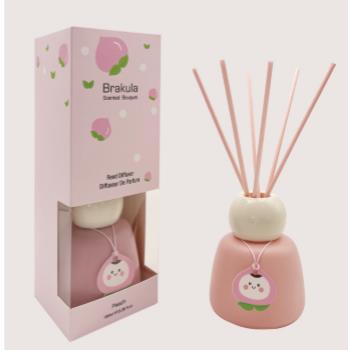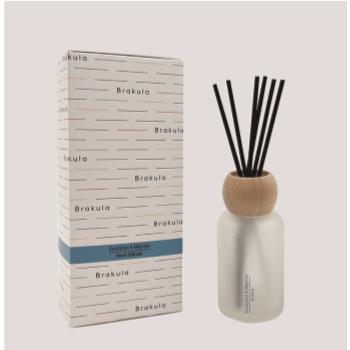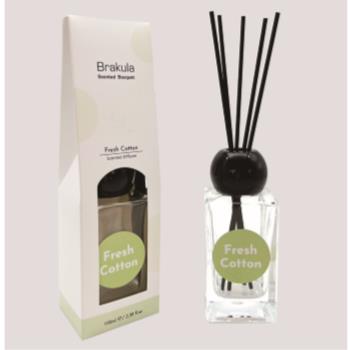Unveiling the Beauty of Rock Tea, More Than Just an Aromatic Delight
The question, "Why did you decide to visit the Wuyi Mountain Rock Tea Factory?" sparked a flood of memories for Liu Anxing.
From a young age, Liu Anxing was immersed in the world of Wuyi rock tea, primarily influenced by his father. His father, a tea research consultant, dedicated his life to advancing the traditional craftsmanship of Wuyi Dahongpao.
Every Chinese New Year, his father would share premium tea leaves with family and friends.
One year, Liu Anxing asked his father a question: "Dad, do all Wuyi rock teas possess that unique 'rock charm'? Is the exceptional fragrance we're experiencing today due to this charm?"
His father didn't provide a straightforward answer but simply smiled and said, "The 'rock charm' of Wuyi Dahongpao is not merely a simple 'fragrance.' You'll understand when you truly grasp the essence of Wuyi Dahongpao."

Liu Anxing reflected on this question for a long time until he entered the Wuyishan City Rock Tea Factory to learn the art of tea making.
In the early 1990s, Liu Anxing joined the Wuyishan City Rock Tea Factory and became an apprentice to Master Zheng Xianxiang to learn tea cultivation and processing.
During this time, as semi-mechanized tea processing was just emerging, Liu Anxing honed his skills in traditional tea-making techniques such as withering, fixation, rolling, and drying, developing a solid foundation in tea craftsmanship and tasting skills.
It was then that he realized the "rock charm" of Wuyi Dahongpao is akin to a person's temperament, shaped by the natural environment of Wuyishan, tea tree varieties, and traditional production techniques. It transcends mere fragrance, offering a profound sensory experience.
In Liu Anxing's view, Wuyi Dahongpao is a gift from nature, and preserving the original ecology of tea gardens is not only crucial for producing high-quality rock tea but also a way to express gratitude to nature.
The tea-making process of Wuyi Dahongpao involves six stages: picking, withering, fixing, rolling, drying, and roasting. In addition to adhering to traditional techniques, Liu Anxing and his fellow craftsmen innovated and optimized the tea-making process.

After comparing various tea leaves, they developed the "Three-Leaves Mid-Bud" standard picking method, which involves selecting three to four leaves and plucking them when the bud at the top of the tea leaf reaches half-open, ensuring optimal taste.
When introducing the tea to the market, they found that the general public was not accustomed to the taste of Wuyi rock tea. Hence, they experimented with a lighter roasting technique instead of the traditional high-heat roasting method.
The medium-light roasting method enhanced the aroma, richness, and longevity of Wuyi rock tea's taste, making it increasingly accepted by consumers.
Liu Anxing emphasized that combining skilled tea-making craftsmanship with advanced machinery is essential for producing high-quality tea leaves. He summarized the tea-making process at Xigua as a fusion of traditional techniques and modern machinery, driving the authentic development of Wuyi Dahongpao.
In the six stages of Wuyi Dahongpao tea-making, initial processing is mostly mechanized, while refining is mostly done manually.
"In the 'fixing' stage," Liu Anxing explained, "we incorporate traditional hand-rolling and airing techniques. Hand-rolling effectively promotes friction between tea leaves, enhances enzymatic reactions with air, and improves the tea's aroma, resulting in a richer taste profile. After hand-rolling and airing, we rely on machinery for even fermentation."

When asked whether manual or machine tea-making is better, Liu Anxing remained silent for about a minute before slowly responding, "This question cannot be generalized. The quality of tea ultimately depends on the end product. The artistry of manual tea-making must be preserved and passed down, but blindly adhering to tradition is not the answer. By ingeniously integrating machinery advantages with traditional techniques, we can increase productivity while ensuring tea quality. It's a win-win situation."
Liu Anxing, now in his mature years, is one of the few inheritors of the Wuyi Mountain Wuyi rock tea Dahongpao production technique, with only eighteen such inheritors nationwide.
Having dedicated half his life to studying tea leaves, he stands on the shoulders of tradition to innovate. He believes that reverence should be the fundamental attitude of all tea makers.
He not only hopes to share fine Wuyi Dahongpao with family and friends but also desires for tea lovers worldwide to savor the authentic and high-quality Wuyi Dahongpao.



